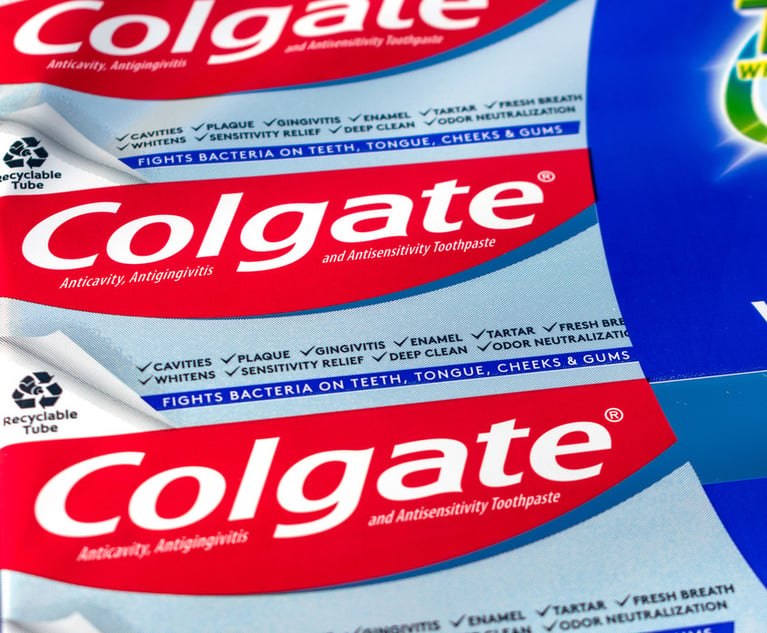ALM Study Shows Progress for Women in MDL Leadership. Plus: Bad News for Bayer's Roundup Accord?
One area that still lags: people of color, only two of whom made the top attorney list for MDL leadership posts.
July 08, 2020 at 03:34 PM
7 minute read
Welcome to Critical Mass, Law.com's weekly briefing for class action and mass tort attorneys. In a new research project, I pored through four years of data to figure out which attorneys managed the most MDLs and found that, in a significant shift from the past, more women made the top list. Could Bayer's $1.1 billion class action settlement over Roundup go bust? Find out who's repping the airlines in nearly 40 class actions over COVID-19 ticket refunds.
Feel free to reach out to me with your input. You can email me at [email protected], or follow me on Twitter: @abronstadlaw

ALM Research: There Are New Players in MDL Leadership. And Many Are Women
One of the oft-cited criticisms of multidistrict litigation is that the same "repeat players," mostly male and white attorneys, were usually in charge. Five years later, some of those names have changed. And so has the gender.
That's according to my own research, outlined in a story out this week, that found women made up 40% of lawyers who got appointments to four or more MDLs that were created from 2016 to 2019. I've got a chart of the top 30 lawyers, which include Amy Keller (DiCello Levitt) and Melissa Emert (Kantrowitz Goldhamer & Graifman) among the top, appointed to six MDLs during that period. Of course, it's still mostly white men, and veteran Chris Seeger (Seeger Weiss) topped the list with 10 MDL appointments.
One area that still lags: people of color, only two of whom made the top attorney list.
But there's more that I found: The story also ranked the top law firms, defined as those whose lawyers got 10 or more appointments during that time. The firms are largely the same as they were five years ago, with Lieff Cabraser and Levin Papantonio topping the list, but many have spread out the appointments to their more junior attorneys, including several women.
But it's not just the firms asking for diversity. Judges have played a major role. Example: On May 8, U.S. District Judge Robin Rosenberg appointed 26 lawyers to lead the Zantac MDL but noted that only 31% of the applicants were women and only a "subset" identified as nonwhite. U.S. District Judge William Orrick, in contrast, appointed 21 lawyers on Dec. 20, largely from a diverse team assembled by the lawyers themselves.
Jaime Dodge (Emory Law), who has followed the issue of diversity in MDLs, was brought into the Zantac cases as special master. She told me:
Judges Orrick and Rosenberg both ended up with very notable and diverse leadership teams, but they got there in very different ways because the MDLs they had, the applicants they had, and the leadership challenges each faced were very different. Juxtaposing Zantac and Juul showcases how the shift in diversity in MDL leadership is a unique and self-reinforcing interaction between the bench and the bar – not the sole product of either in isolation."

Chhabria Ready to Reject Bayer's $1.1 Billion Settlement in Roundup Class Action
No sooner had the ink dried on Bayer's $1.1 billion class action settlement over Roundup than a federal judge said he's likely to reject it.
U.S. District Judge Vince Chhabria, who set a July 24 hearing on whether to grant preliminary approval of the settlement, issued an order on Monday rejecting requests from about a dozen law firms to extend a July 13 deadline to file oppositions. Then he added this zinger: "However, even before receiving opposition briefs, the court is skeptical of the propriety and fairness of the proposed settlement, and is tentatively inclined to deny the motion," he wrote. On Wednesday morning, lead plaintiffs attorney Elizabeth Cabraser (Lieff Cabraser) filed a notice that she would withdraw the settlement documents to give the parties time to revise the agreement.
Why is this important? It's a potential setback for Bayer, which reached other settlements worth up to $10.9 billion to resolve 75% of about 125,000 claims that subsidiary Monsanto's Roundup causes non-Hodgkin lymphoma. The class action settlement, which is the only one that needs judicial approval, is designed to put a cap on liability because it would resolve future Roundup claims.
So, what did Chhabria say? Well, first off, he had a lot of concerns about a proposed science panel that would make the final decision on whether Roundup causes non-Hodgkin lymphoma, rather than leave it to judges and juries. He also wasn't sure the notice would reach everyone. And he questioned why anyone would participate as class members when other Roundup users have gotten "significant compensatory and punitive damages" at trial.
Brian Fitzpatrick (Vanderbilt Law), who had planned to file an opposition on Monday, along with Roland Tellis (Baron & Budd), told me the settlement had procedural and substantive problems:
"The procedural problems include the lack of meaningful consent to losing a jury, losing a right to an Article III tribunal. I also have questions about the adequacy of representation, of these representative plaintiffs, and class counsel. And, when it comes to substance, there's real concerns that the class is giving away a lot and not getting anything back. To lose punitive damages, to lose a jury, in exchange for payments that are keeping people afloat by the delay that's created by the settlement itself, it doesn't seem they're getting much in exchange for giving up those very important rights."
Who Got the Work?
The lawyer who pushed for a multidistrict litigation proceeding for nearly 40 class actions filed against 21 airlines over ticket refunds amid COVID-19 has withdrawn his request, citing independent moves to consolidate the actions. But prior to the July 7 filing, lawyers appeared this month for the airlines, among them some heavy hitters at DLA Piper: Keara Gordon for British Airways, Christopher Young for Lufthansa, and Raj Shah for Iberia. Others appearing included: James Brandt (Latham) for American Airlines; Charles Wachter (Holland & Knight) for Air Canada; Jake Sorensen (Pillsbury) for Norwegian Air; Steven Marcus (Frank, Weinberg & Black) for Spirit Airlines; Jeffrey Brundage (Eckert Seamans) for China Eastern Airlines; Scott Cunningham (Condon & Forsyth) for All Nippon Airways; Paul Alston (Dentons) for Hawaiian Airlines; and Robert Herrington (Greenberg Traurig) for Allegiant Air.
Here's what else is happening:
Joining Zoom: Mark Molumphy (Cotchett Pitre) and Tina Wolfson (Ahdoot Wolfson) were appointed interim co-lead counsel in a privacy class action against Zoom. U.S. District Judge Lucy Koh also appointed Rachele Byrd (Wolf Haldenstein), Albert Chang (Bottini & Bottini) and Eric Gibbs (Gibbs Law Group) to a steering committee. Taking a page from her orders in data breach cases against Yahoo and Anthem, Koh added that "the court will not award fees for additional plaintiffs' counsel whom the court has not approved."
Facebook Boycott: Among the hundreds of advertisers boycotting Facebook over hate speech is Philadelphia plaintiffs' firm Kline & Specter. Founding partner Shanin Specter said that recent communications from President Donald Trump and his campaign motivated his firm to make the decision. "In recent weeks, I have felt repetitively that Facebook has been far too permissive in publishing hate speech and other communications that no responsible publisher would publish," he said.
Different Tune: YouTube was hit with a class action alleging it prioritizes major record labels and studios over smaller artists when it comes to its copyright enforcement tools. George Zelcs (Korein Tillery) and Philip Korologos (Boies Schiller) filed the case July 2 on behalf of Grammy award-winning artist Maria Schneider and Pirate Monitor LTD, which owns the rights to Hungarian films. The suit alleges that YouTube's automated tool, Content ID, is unavailable for small content holders, which have to manually file take-down notices through its online email.
Thanks for reading Critical Mass! Stay safe, and I'll be back next week.
This content has been archived. It is available through our partners, LexisNexis® and Bloomberg Law.
To view this content, please continue to their sites.
Not a Lexis Subscriber?
Subscribe Now
Not a Bloomberg Law Subscriber?
Subscribe Now
NOT FOR REPRINT
© 2025 ALM Global, LLC, All Rights Reserved. Request academic re-use from www.copyright.com. All other uses, submit a request to [email protected]. For more information visit Asset & Logo Licensing.
You Might Like
View All
Consumer Protection Suit Cleared to Go Forward Against Irritating Eye Serum
4 minute read
Law Firm Sued for Telemarketing Calls to Customers on Do Not Call Registry

Colgate Faces Class Actions Over ‘Deceptive Marketing’ of Children’s Toothpaste
Trending Stories
- 1Gunderson Dettmer Opens Atlanta Office With 3 Partners From Morris Manning
- 2Decision of the Day: Court Holds Accident with Post Driver Was 'Bizarre Occurrence,' Dismisses Action Brought Under Labor Law §240
- 3Judge Recommends Disbarment for Attorney Who Plotted to Hack Judge's Email, Phone
- 4Two Wilkinson Stekloff Associates Among Victims of DC Plane Crash
- 5Two More Victims Alleged in New Sean Combs Sex Trafficking Indictment
Who Got The Work
J. Brugh Lower of Gibbons has entered an appearance for industrial equipment supplier Devco Corporation in a pending trademark infringement lawsuit. The suit, accusing the defendant of selling knock-off Graco products, was filed Dec. 18 in New Jersey District Court by Rivkin Radler on behalf of Graco Inc. and Graco Minnesota. The case, assigned to U.S. District Judge Zahid N. Quraishi, is 3:24-cv-11294, Graco Inc. et al v. Devco Corporation.
Who Got The Work
Rebecca Maller-Stein and Kent A. Yalowitz of Arnold & Porter Kaye Scholer have entered their appearances for Hanaco Venture Capital and its executives, Lior Prosor and David Frankel, in a pending securities lawsuit. The action, filed on Dec. 24 in New York Southern District Court by Zell, Aron & Co. on behalf of Goldeneye Advisors, accuses the defendants of negligently and fraudulently managing the plaintiff's $1 million investment. The case, assigned to U.S. District Judge Vernon S. Broderick, is 1:24-cv-09918, Goldeneye Advisors, LLC v. Hanaco Venture Capital, Ltd. et al.
Who Got The Work
Attorneys from A&O Shearman has stepped in as defense counsel for Toronto-Dominion Bank and other defendants in a pending securities class action. The suit, filed Dec. 11 in New York Southern District Court by Bleichmar Fonti & Auld, accuses the defendants of concealing the bank's 'pervasive' deficiencies in regards to its compliance with the Bank Secrecy Act and the quality of its anti-money laundering controls. The case, assigned to U.S. District Judge Arun Subramanian, is 1:24-cv-09445, Gonzalez v. The Toronto-Dominion Bank et al.
Who Got The Work
Crown Castle International, a Pennsylvania company providing shared communications infrastructure, has turned to Luke D. Wolf of Gordon Rees Scully Mansukhani to fend off a pending breach-of-contract lawsuit. The court action, filed Nov. 25 in Michigan Eastern District Court by Hooper Hathaway PC on behalf of The Town Residences LLC, accuses Crown Castle of failing to transfer approximately $30,000 in utility payments from T-Mobile in breach of a roof-top lease and assignment agreement. The case, assigned to U.S. District Judge Susan K. Declercq, is 2:24-cv-13131, The Town Residences LLC v. T-Mobile US, Inc. et al.
Who Got The Work
Wilfred P. Coronato and Daniel M. Schwartz of McCarter & English have stepped in as defense counsel to Electrolux Home Products Inc. in a pending product liability lawsuit. The court action, filed Nov. 26 in New York Eastern District Court by Poulos Lopiccolo PC and Nagel Rice LLP on behalf of David Stern, alleges that the defendant's refrigerators’ drawers and shelving repeatedly break and fall apart within months after purchase. The case, assigned to U.S. District Judge Joan M. Azrack, is 2:24-cv-08204, Stern v. Electrolux Home Products, Inc.
Featured Firms
Law Offices of Gary Martin Hays & Associates, P.C.
(470) 294-1674
Law Offices of Mark E. Salomone
(857) 444-6468
Smith & Hassler
(713) 739-1250









